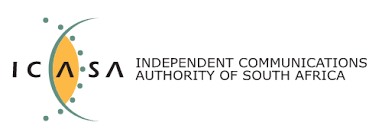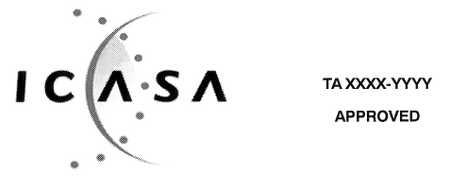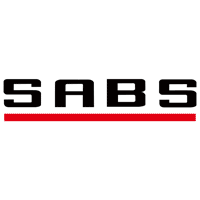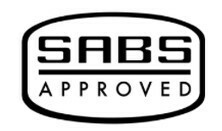South Africa
Certification services in South Africa include ICASA, NRCS, and SABS. These schemes are not always mandatory, as requirements depend on the specific product being marketed in South Africa.

Certification Services in South Africa
- ICASA
- NRCS
- SABS
These three certification schemes are not always mandatory, as requirements depend on the type of product being placed on the South African market.
ICASA Approval Process
ICASA is South Africa’s official regulator for communications, broadcasting, and postal services. Products such as radio frequency transmitters and receivers that use the radio spectrum or connect to the public network must obtain mandatory ICASA type approval certification before being marketed in South Africa, unless specifically exempted by the Regulatory Authority.

ICASA issues Type Approval for any equipment used, or intended for use, in connection with the provision of electronic communications, unless specifically exempted by the Authority.
Applications for Type Approval
- Manufacturers
- Importers
- Distributors
- Any South African registered company
Testing for ICASA Approval can only be performed in ISO/IEC 17025 accredited laboratories.
Applicants must also designate a local supplier, as the certificate will formally appoint this supplier.
Validity of ICASA Approval
ICASA approvals are granted for an indefinite period. The standard lead time for the approval process is approximately six weeks.
ICASA Label Requirements
All equipment approved by ICASA must be properly labeled in compliance with the National Authority’s Labeling Regulations.

The minimum size of the ICASA logo is 3 mm x 3 mm.
The height-to-width ratio of the ICASA label must be 1:2 (e.g., 10 x 20 mm).
The label must display both the ICASA logo and the certificate number issued by ICASA.
The ICASA certificate number must follow the format: TA XXXX-YYYY, where:
TA: Type Approval
XXXX: Year of issue of the TA Certificate
YYYY: Sequential number assigned by ICASA.
The label must be clearly visible on both the equipment and its packaging. It must also be protected against damage that could reduce legibility or cause confusion. When requesting type approval, local suppliers must specify whether an e-label and/or a printed label will be affixed to the equipment.
Application Process
The type approval and licensing process consists of the following three phases:
- Performance testing in accordance with the applicable technical standards
- Electromagnetic compatibility (EMC) testing – emission and immunity measurements
- Safety testing
Processing Time
The approval process typically takes around 30 days once all required documentation is submitted.
NRCS
The NRCS (National Regulator for Compulsory Specifications) is the authority responsible for approving electrical and electronic products intended for the South African market.

NRCS Type Approval Process
The NRCS approval process is a conformity assessment system that serves as both a safety and energy efficiency mark for electrical and electronic products. NRCS mandatory requirements are aligned with international standards; therefore, all equipment falling within the Compulsory Specification Scope must comply with South African safety standards. Specifically, equipment connected to the common network (230 V / 400 V AC, 50 Hz) and all rechargeable equipment require NRCS approval.
NRCS compliance testing, based on safety and/or performance requirements, can only be conducted in accredited laboratories.
The NRCS Certificate is valid for three years. The standard lead time to obtain certification is approximately 18 weeks, and applicants must appoint a Local Supplier.
NRCS Label Requirements
According to NRCS, there are no mandatory product marking requirements to demonstrate compliance with National Safety Standards. An LOA (Letter of Authority) issued by NRCS is sufficient proof of compliance.
SABS
The South African Bureau of Standards (SABS) operates a conformity assessment system that serves as the EMC (Electromagnetic Compatibility) Compliance Mark. SABS defines the national standards that must be met to obtain the EMC Approval Certificate, known as the SABS Certificate of Compliance (CoC).

Is SABS Mandatory?
SABS standards include both voluntary and mandatory requirements. Out of approximately 5,000 SABS standards, only 53 are strictly mandatory. However, depending on legislation, additional standards—such as those related to electrical safety—may also be legally enforced.
Type Approval Process
SABS approval applies to all non-telecommunications products. Products that do not fall under ICASA regulations will require mandatory SABS approval. According to SABS, products already holding ICASA Type Approval are exempt from SABS approval.
SABS testing for EMC compliance can only be performed by Authorized Laboratories (SABS A-Lab) in accordance with ISO/IEC 17025 requirements.
The SABS Certificate of Compliance is valid for three years, and applicants must appoint a Local Supplier to obtain it.
SABS Label Requirements
The SABS Product Mark confirms compliance with safety, quality, and redress standards. The product label must be displayed as prescribed by the National Authority.

SABS Label Must Include:
- Manufacturer's trade or brand name (if no brand name, the manufacturer’s permit number is acceptable)
- Model number
- Ratings requirements (voltage, current, power, frequency, etc.)
- If only a subset of the specification is tested, the relevant standard number must also be included on the marking
How to Obtain Type Approval in South Africa
To ensure successful testing and approval, begin by consulting with VES Testing & Certification. Our experts will help determine which standards apply to your product. With more than 12 years of global experience across 34 countries, we provide the knowledge and expertise to help your products achieve compliance and reach the market faster. Contact us today at info@ves-certification.com.
